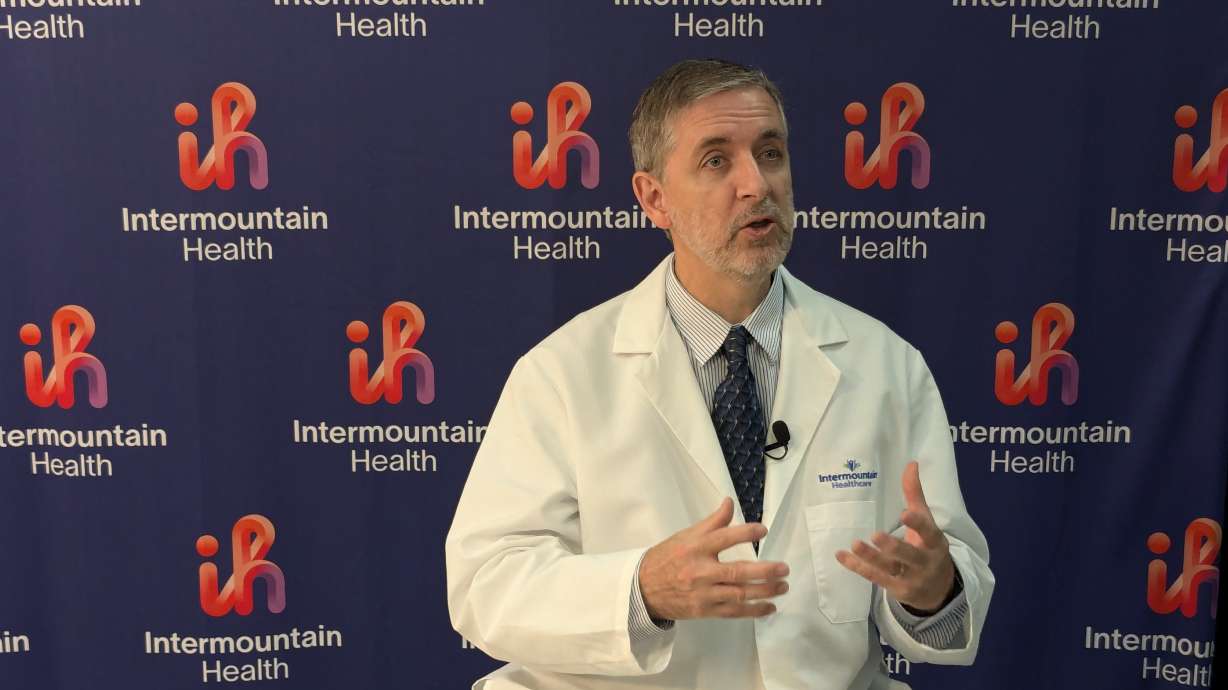Estimated read time: 3-4 minutes
This archived news story is available only for your personal, non-commercial use. Information in the story may be outdated or superseded by additional information. Reading or replaying the story in its archived form does not constitute a republication of the story.
SALT LAKE CITY — If you run into Dr. Benjamin Horne anytime soon, you may see him pinching himself, maybe even with a smile on his face.
You would do the same thing too, if you won a $2.4 million grant from the National Institutes of Health that could help save people's lives.
"I've been trying to make sure I wasn't having a dream," said Horne, a professor of research at Intermountain Health. He specializes in cardiovascular and genetic epidemiology. "It's exciting. I've been at Intermountain for 28 years ... but I haven't had this kind of resource. It's quite an honor and a great opportunity to continue doing meaningful things to help patients have longer, healthier lives."
Thanks to the grant, Dr. Brian Whisenant, a cardiologist with a specialization in structural heart disease at Intermountain Health, and Horne plan to continue their work on the heart's valves and how to ensure they are working properly. Specifically, they will look for the predictors of mitral valve prolapse, a condition where the heart valve does not function properly, cause blood to flow to areas it is not supposed to go.
They are not seeking volunteers; they will analyze the health history of 10,000 clients — living and deceased — in hopes of learning potential symptoms of mitral valve prolapse. Ideally, the doctors will learn more about a condition that affects 7.8 million people in the U.S. and 176 million people around the world and move closer to making this a nonfatal issue.
A faulty valve can cause irregular heartbeats, lead to heart disease and cause one to suffer from cardiac arrest along with other ailments. The more Horne and Whisenant find out about what causes the prolapse, what happens if it is discovered early on and how the condition affects other diseases such as diabetes and high blood pressure, the more lives will be saved by educating doctors and patients on this heart disorder.
"We'll look at questions like, does diabetes predispose you to having problems that will affect the structure of the heart? Can high blood pressure overwork the heart? How does this condition progress?" Horne said. "What's really important is working with a clinician like Dr. Whisenant, who understands the process of care. His presence will help us think about how to pass information on to other clinicians in a way that will be useful for them and for their patients."
I'm so grateful to the doctors. ... They saved my life and they'll save more people if they can work on understanding what's going on with the heart valve.
– Bill Beeton, Provo heart patient
Bill Beeston can testify to the merits of this research. After going from being able to mow his lawn, to only doing so with shortened breath and ultimately not being able to mow the lawn at all, he — with the urging of his wife — decided to see a doctor.
He is thankful every day that he did.
"They told me I had a problem with a heart valve and if I didn't do something, I'd be dead in two years. It was scary to hear," said the Provo resident. "But I learned about research at Intermountain that could correct my problem without open heart surgery. I felt better as soon as I woke from the surgery. I'm so grateful to the doctors. I really am. They saved my life and they'll save more people if they can work on understanding what's going on with the heart valve.
"I have to go back to mowing the lawn these days," he said with a laugh. "But I feel great doing it. That's a big change."









